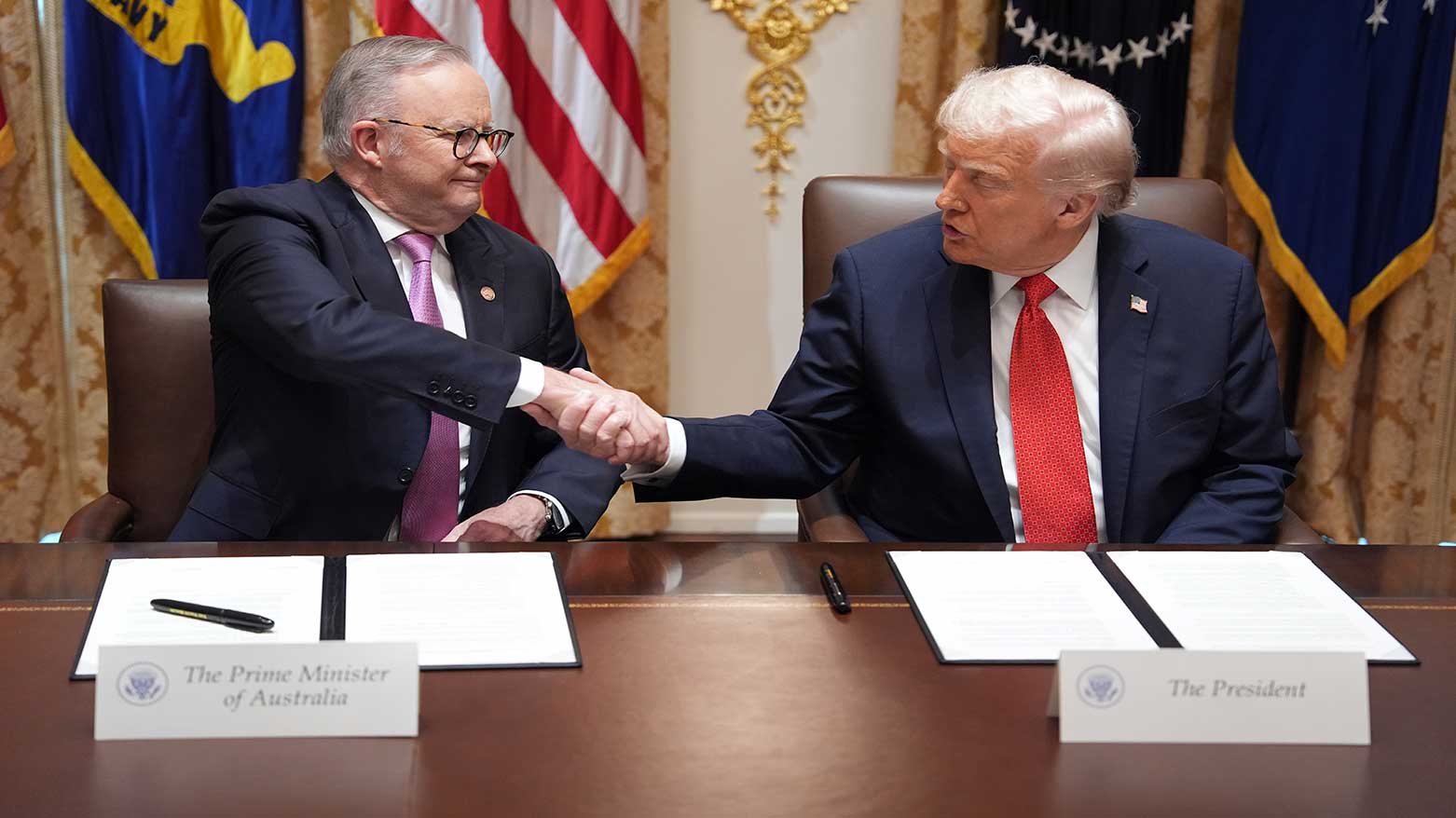Trump, Albanese Sign $8.5 Billion U.S.-Australia Deal to Secure Critical Minerals and Counter China’s Dominance
The two leaders also discussed AUKUS, the trilateral defense pact between Australia, the U.S., and the United Kingdom, which aims to strengthen Indo-Pacific security and equip Canberra with nuclear-powered submarines.

ERBIL (Kurdistan24) — U.S. President Donald Trump and Australian Prime Minister Anthony Albanese on Monday signed a landmark $8.5 billion critical-minerals agreement at the White House, aimed at bolstering Western access to rare earths as China tightens control over its own mineral exports.
The deal, negotiated over several months, marks a major step in Washington’s strategy to reduce dependence on Beijing for materials vital to advanced technology, defense systems, and clean-energy industries.
“In about a year from now, we’ll have so much critical mineral and rare earth that you won’t know what to do with them,” Trump said, boasting about the partnership. “They’ll be worth $2.”
Albanese hailed the agreement as a milestone that “takes the U.S.-Australia relationship to the next level,” reflecting growing alignment between the two allies on both economic and security fronts.
The announcement follows Beijing’s recent decision to require foreign companies to seek government approval before exporting any products containing Chinese-origin rare earths or technology — a move Washington says extends China’s power over global supply chains.
“Australia is really going to be helpful in making the global economy less risky and less exposed to the kind of rare earth extortion we’re seeing from the Chinese,” said Kevin Hassett, director of the White House National Economic Council.
Australia is home to some of the world’s richest deposits of lithium, cobalt, and rare earth elements, all essential components in electric vehicles, smartphones, fighter jets, and missiles.
Under the new deal, the U.S. and Australia will invest over $3 billion in joint mining and refining projects within six months, according to Gracelin Baskaran, director of the Critical Minerals Security Program at the Center for Strategic and International Studies in Washington — an unusually fast pace for such major industrial investments.
While the agreement could enhance near-term access to non-Chinese minerals, experts caution that achieving full independence from Beijing’s mineral supply chain may take decades.
“China has almost a 40-year head start on us,” said Pini Althaus, founder of USA Rare Earth and now CEO of Cove Capital.
“Taking away China’s ability to manipulate prices is an essential first step, but it will take at least a couple of decades for the West to catch up.”
He noted that Australia alone cannot meet all U.S. demand and urged further investment in mining projects in Central Asia, where Soviet-era infrastructure could shorten development timelines.
The two leaders also discussed AUKUS, the trilateral defense pact between Australia, the U.S., and the United Kingdom, which aims to strengthen Indo-Pacific security and equip Canberra with nuclear-powered submarines.
Trump praised the pact as “moving along very rapidly, very well,” while Albanese reaffirmed its importance to Australia’s defense posture. U.S. Navy Secretary John Phelan said Washington seeks to “clarify some of the ambiguity” in AUKUS to make it “a win-win for everybody.”
China, however, reiterated its strong opposition. “We always oppose creating bloc confrontation and intensifying an arms race,” said Chinese Foreign Ministry spokesperson Guo Jiakun on Tuesday.
Albanese’s visit comes ahead of Trump’s planned meeting with Chinese President Xi Jinping in South Korea later this month, where trade and strategic tensions are expected to dominate the agenda.
The Australian prime minister, a center-left leader re-elected in May, emphasized his nation’s independent approach to global challenges.
“Australians have chosen to face global challenges the Australian way — looking after each other while building for the future,” he said following the signing ceremony.
The deal highlights a deepening U.S.-Australia alliance at a time of shifting geopolitical rivalries, as Washington rallies partners to secure critical resources and reduce China’s leverage over global industries that will define the coming decades.
